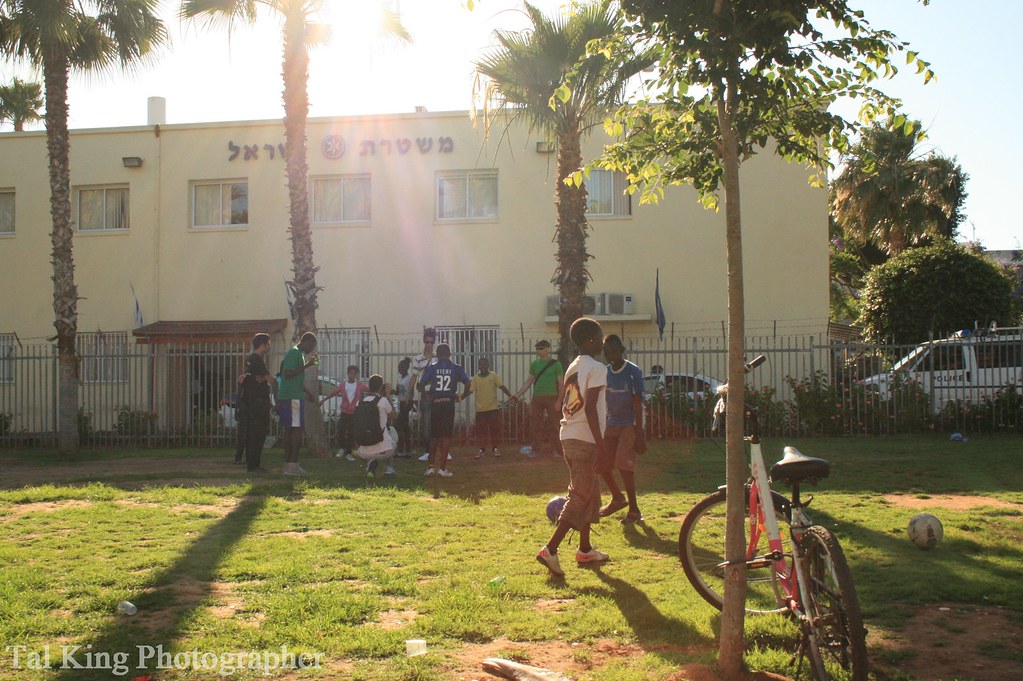Benefit Packages
Israel to African nations: take our asylum seekers and we will give you arms.

A party for African immigrant children in the Hatikva neighberhood of Tel Aviv, 2012 (Photo: Tal King, via Flickr CC).
Over the last few days more details have come to light about Israel’s operation to deport African asylum seekers back to the continent, to whichever country wants to take them in exchange for “benefit packages.” On Tuesday Israeli newspaper Yedioth Ahronoth published an article in Hebrew, followed by a slightly different English version on its website revealing that the Israeli government is about to close a deal with at least three African countries to provide them with the “benefits packages” in exchange to absorbing thousands of asylum seekers from Africa who currently reside in Israel. Israel’s chief negotiator for the talks was the former senior Mossad official, Hagai Hadas, appointed by the Prime Minister, Benjamin Netanyahu.
In the article–the Hebrew version is headlined “‘Arms for infiltrators'” (refugees and asylum seekers are routinely referred to as infiltrators in Israeli media)–the package is described by a senior official as containing security aid, including Israeli arms and military knowledge and training. These, along with a grant that will be given to the deportees, “will contribute to the economies of those countries.”
A second Israeli official told Yedioth Ahronoth on Tuesday that Israel continues to explore the possibility of returning Sudanese and Eritrean asylum seekers to their home countries. Israel already took such measures in the recent past, despite the risks involved to the Sudanese coming from a country with no diplomatic relations with Sudan, to repatriate about 2,100 Sudanese back to Sudan. Sudanese media reported last month that Sudanese authorities have been interrogating those who have lived in Israel and returned to their country supposedly secretly through Jordan.
Israeli media reports that for the last few days the Israeli Administration of Border Crossings, Population and Immigration, has been getting imprisoned Eritreans asylum seekers in Saharonim prison to sign “willful emigration” documents that allow deporting them from Israel. This process, revealed by Amnesty International and the Israeli Hotline for Migrant Workers, follows the Attorney General of Israel decision to approve this procedure two weeks ago.



















